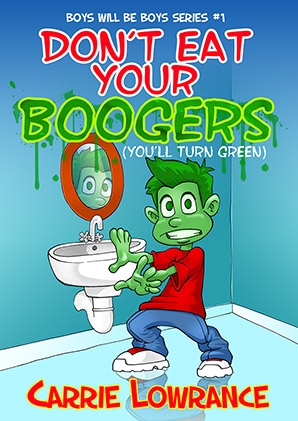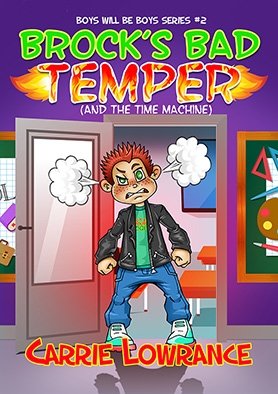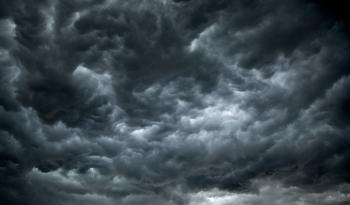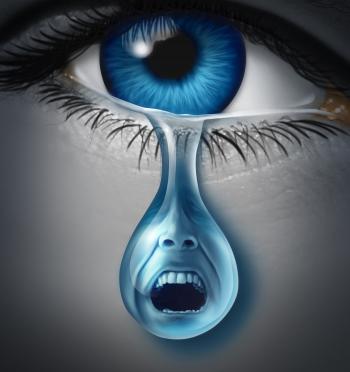Users Who Spiked

THE ROAD NOT TAKEN: THINGS I HAVE LEARNED ON MY AUTHOR JOURNEY
Private Notes
Private Notes
Notes
I started my author journey in 2015. I have always had a love of writing since childhood and dreamed of becoming an author. However, these dreams weren't always encouraged. My Dad and his side of the family always told me that there is no money in writing. They told me that I needed to go to college and get a "good" job because writing doesn't pay the bills. All my life I let this go in one ear and out the other. Writing is what I wanted to do, and no one was going to deter me. I knew I wanted to write and publish books, but I wasn't sure how I was going to do it.
It wasn't until I saw a segment on CBS This Morning on New Year's Day 2014 that everything changed. There was a segment on about author Jasinda Wilder. She and her husband had both lost their jobs with five mouths to feed. They decided to read every book on one of the bestseller lists to see what was popular. Then Jasinda chose to write her book and publish it on Smashwords. Smashwords is an e-book publishing platform for independent or "indie" authors. The day her book released, it sold 500 copies and grew from there. I was astounded; I had never even heard of Smashwords before. I decided that day that I would publish my book in a year. I may not make the money she was making, but getting the book out there would be half the battle. I had to learn about this whole publishing adventure myself, finding where to get a cover, someone to format it, how to publish on each platform, etc. However, a year and four months later I released my first book of poetry, Lithium Dreams and Melancholy Sunrise. That year I also published a second book of poetry, The Safety of Objects and my first children's book, Don't Eat Your Boogers (You'll Turn Green).
I published my third book of poetry, Shadow of Soul in 2017 and my second children's book, Brock's Bad Temper (And The Time Machine) in January of 2018. I'm currently working on my first Christian romance novel in my new series.
Lessons Learned and Fixing Mistakes
It has been an exciting three years since then. I have made many mistakes and have learned so many things. Being an author is a constant journey, and you are always learning something. Therefore, I want to share some of these things with you so that you can learn from my mistakes.
Before Writing.
1. Verify your book idea-Nobody wants to write a book that no one will want to read. Therefore, it is vital to do your research. Search for the best-selling books in your genre on Amazon and look at the top ten books. Take a look at the Amazon Bestseller Rank. If a book is ranking around 35,000, you have a valid idea. To make this easier, I use a tool called Publisher Rocket (www.publisherrocket.com) which helps me search for ideas, categories, keywords, and learn about the sales of other authors books in my particular genre.
2. Write for your audience-You must write for your audience and stick to the "rules" of your genre. What rules? The basic beats of the plot. How do you figure out these rules? Read a lot of books in your category and watch a lot of movies in your niche. We'll call this research.
3. It's all about the cover-Your cover must look like other books in your genre. You can't just slap on a cover that you like and call it good. I did this when I published my first book, and now I plan on changing the covers on all three of my poetry books this year. Once again, search for the best-selling books in your genre and look at the covers in the top ten. Choose 2-3 covers that you want your cover designer to "model" for your book.
4. Illustrations can be expensive-If you are planning to publish a children's book and need an illustrator, start your search early. Pictures, in my opinion, are the most expensive part of publishing a book. I use Jeanine Henning (www.jeaninehenning.com) for the pictures and covers in my children's books. She also can do covers for other genres as well. She is talented, professional, and I love working with her.
5. Find a person to format your book-There are tools you can use to format your book yourself. Formatting is making sure everything is in alignment on your pages and that your book fits a specific trim size. In a nutshell, it's all about the interior of your book. I use Maureen Cutajar (www.gopublished.com), but you can also find people who do great formatting on Fiverr and Upwork.
Putting it All Together
5. Publishing doesn't have to cost a fortune-Publishing my first book cost me around $300. This expense was just for the cover and formatting. (It doesn't cost you to upload and publish on Amazon.) However, you can hire a cover designer and a person to format your book at much more reasonable prices on Fiverr and Upwork. I don't believe that you have to sacrifice quality because you pay a little less.
Before You Publish.
7. You must have a marketing strategy-This is something a lot of new authors miss. You can't just put a book out into the world and think it's going to fly off the shelves. You must have a marketing strategy ahead of time. What social media platforms are you going to use to promote your book? Are you going to buy ads? Have you researched local author events to attend? Have you contacted local independent bookstores about your book? There are a million ways to market your book, do some research and make a plan.
8. You have to have a launch strategy-What is your plan to launch your book? Are you going to look for readers to give you reviews? Are you going to run ads? Are you going to do a soft launch? Once again, there are many ways to do a book launch. Do some research and make a solid plan for the day you release your book into the world.
9. Choose your options-It's essential to determine what formats you want for your book. My children's books are on Kindle, paperback, hardcover, and audiobook. My poetry books will soon follow in hardback and audiobook. It is vital to give your readers options to consume your content.
NOTE: There are tons of people out their giving advice an authorship and publishing books. You will get overwhelmed with an internet search. My best advice is to find someone you resonate with and whose life you want to emulate and follow them. Learn how they do things and connect with them. It may take a few tries to find your "guru," but when you do, it will make all the difference.
Author Essentials
9. You must have a website-Every author must have a website. These days if you don't have one you might as well be invisible. Your site is the "main" hub where you send your readers to connect with you.
10. You should have a blog-Blogging is a great way to communicate with your readers and to let them know what is going on in your world.
11. An email list is crucial-You must have a way for people to sign up for your newsletter to create an email list. With this, you also have to have an opt-in. No one will give you their email address for free. An opt-in can be simple like a checklist, a list of resources, or a short e-book. Currently, my opt-in is a publishing checklist.
12. Claim your social media handles-Make sure you have an account with every social media platform, this way no one can use your name.
13. You don't have to use every social media platform-Although you have accounts with every social media platform; it doesn't mean you have to use them all. Pick 2-3 and master them. I mainly focus on Facebook, Instagram, and Pinterest.
You Can't Be a Hermit
One thing I have learned is you can't be a hermit when you are an author. I'm naturally an introvert, but I still like to go out and socialize at author events and meet potential readers.
14. You have to be social-Contact your local library, artists society, and bookstores to see if they have any author events. If so, sign up for one and go out and promote you and your book. Have fun with it and enjoy meeting new people. For example, in the fall I take gummy booger candy with me to promote Don't Eat Your Boogers. Any other time, I buy a bag of Hershey's miniatures and call it good. If you write poetry, look and see if you have a local poetry society or call around to coffee shops and see if they have an open mic night.
15. Independent bookstores are your friend-Call your local "indie" stores and see if they will carry your books on consignment. This means that they will take a small part of the profits, but you keep the rest whenever they sell one of your books.
16. Networking is important-Join a local or online writer's group, search for author groups in your specific niche on Facebook, or start a Facebook group for local authors in your area. Being an indie author can be a lonely road and being able to talk to others who get it and that you can bounce things off of is invaluable. I have some awesome online friends who are authors.
As you can see, I have learned a lot in the past three years on this crazy journey as an author. However, I wouldn't change a thing. I hope this article inspires you if you are thinking about becoming an author and enlightens you if you are just getting started on your journey. Either way, we are all in this together. Happy writing and happy publishing.
Comments
Please login to post comments on this story
-
What an inspiring story Carrie! Thanks for sharing so many tips and insight from your personal experience!
-
These are really great tips! Thank you so much for sharing!
-
You are welcome, Miranda. :)
-
-
Thanks for the tips. Will definitely take heed.
-
You're welcome, Donnis.
-
-
This is great information and advice! Thank you for your insights.








































Thank you, Tomas. I'm glad you found it to be helpful. :)